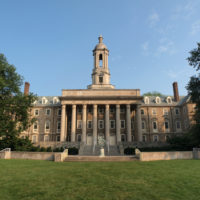How Can I Leave Assets To My Alma Mater?

One of the primary goals of the estate planning process is to create direct pathways for your assets to transfer from your estate to your loved ones after your death. For some, deciding who will receive their assets is a difficult decision, especially if they have few relatives or no relationship with the relatives they have.
Your estate plan’s beneficiaries do not have to be people. They can be charitable organizations or institutions like churches and universities. It is actually quite popular for individuals to include their alma maters in their estate plans as a way to use their wealth to help current and future students. Below are a few different strategies you can use to leave money to your alma mater.
Use your Will to Bequeath Money or Property to the School
In your will, you can specify that your alma mater is to receive a specific amount of money or a specific piece of your property, such as your art collection or your personal library. This works the same way as naming a person as a beneficiary in your will.
You can also leave money to your alma mater through a residuary clause. This type of clause states that once all your other assets are distributed to their respective beneficiaries, a percentage of the remaining money is to go to the beneficiary named in the clause. You can leave a percentage of your remaining estate or all of it to your alma mater this way.
Place Assets in a Charitable Remainder Trust and Name your School as its Beneficiary
A charitable remainder trust is an irrevocable type of trust that creates an income stream for its beneficiary, which can be your alma mater. With this type of trust, you put money into the account and enjoy certain tax benefits while receiving a regular income from the trust along with any other beneficiaries you designate.
You can also set it up so the beneficiaries are you and one or more of your relatives, then when the last of the beneficiaries passes away, the assets in the trust go to a designated charitable organization, including your alma mater.
Name your Alma Mater as a Beneficiary of your Retirement Account
You can also name your school as a beneficiary on one or more of your retirement accounts. Money in this type of account does not go through probate, so you can use this method to ensure that your assets go straight to your alma mater.
Work with an Experienced Tampa Estate Planning Lawyer
If you have a strong affinity for your alma mater, leaving part or even all of your estate to the school can be a great way to give back to the community that launched your career. To discuss the various ways to leave assets to your alma mater in greater detail with an experienced Tampa estate planning lawyer, contact our team at Bubley & Bubley, P.A. today to set up your initial consultation with our firm.
Resource:
nytimes.com/2014/10/11/your-money/giving-back-to-your-school-in-a-big-way.html
investopedia.com/articles/personal-finance/100616/do-retirement-accounts-go-through-probate.asp



